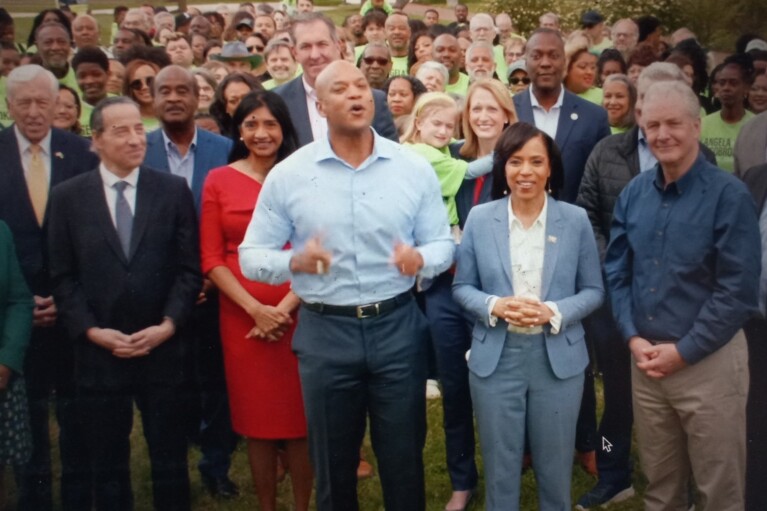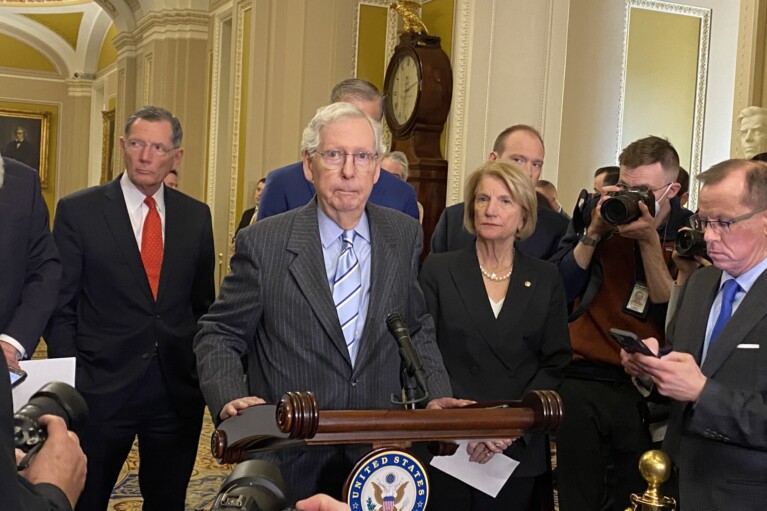
Adam Pagnucco, the estimable political analyst, numbers cruncher and sometime hired gun, took a break last week from warning about the looming apocalypse, now that Montgomery County has enacted rent control, to examine the Democratic primary for U.S. Senate. He called the five-part series on his Montgomery Perspective website “Jawando the Spoiler.”
Pagnucco’s theory, and he’s not the only smart person in Maryland to a espouse it, is that the candidacy of Montgomery County Councilmember Will Jawando could derail the bid of Prince George’s County Executive Angela Alsobrooks, who is one of the two frontrunners in the Senate primary along with deep-pocketed U.S. Rep. David Trone (D-6th). As usual, Pagnucco admirably weaves census data and election statistics together to make his case, and the basis of his argument is that one strong Black candidate in the race could prove fatal to another.
I’m not saying Pagnucco isn’t right here; he could be. But I think he makes a few assumptions that are out of date and don’t entirely align with what’s happening on the ground.
One thing I do agree with Adam on: I can’t find anyone outside of the Jawando family and his immediate political circle who believes at this moment that this guy can win, despite his record and obvious talents. That may or may not change in the months ahead.
Where I quarrel with Pagnucco is that he basically suggests the 2024 Democratic primary, absent Jawando in the race, would closely resemble the 2016 Democratic primary for Senate, when then-U.S. Rep. Chris Van Hollen, a white guy from Montgomery County like Trone, defeated his congressional colleague Donna Edwards, a Black woman from Prince George’s like Alsobrooks, 53% to 39%.
Pagnucco rightly points out that Black voters make up about 40% of the Democratic primary electorate in Maryland and that Edwards ran strongest in the three jurisdictions with heavy black population — her home base of Prince George’s County, Baltimore City and Charles County. But let’s face it: Angela Alsobrooks is no Donna Edwards. And David Trone is no Chris Van Hollen.
Edwards was an insurgent candidate, one of the most progressive members of the House of Representatives, targeted by the powerful pro-Israel lobby AIPAC, and often estranged, if not outright at odds, with other Maryland Democratic leaders, who felt she didn’t pay close enough attention to constituent services. Alsobrooks, on the other hand, is the establishment favorite in this primary, as Van Hollen was — a point reinforced by Van Hollen’s dramatic decision Tuesday to back her campaign. She has racked up countless endorsements from all over the state, and when all is said and done, she is likely to get the critical backing of Gov. Wes Moore (D) and U.S. Rep. Jamie Raskin (D-8th), who pondered entering the Senate primary himself.
Alsobrooks is also a consummate retail campaigner, oozing empathy and enthusiasm. She’s out in the community constantly and has, like Moore, an ability to connect with just about any audience. What’s more, there are countless Maryland Democrats, of all genders and hues, who think it’s about time that the state elect a Black woman to the Senate, and who are generally enthusiastic about Alsobrooks’ potentially history-making bid even if they haven’t completely focused on the policy priorities and political styles of the three leading contenders. So that accrues to Alsobrooks’ benefit as well — all the more so now that we’re in a post-Dobbs world and have lived through a Trump presidency and could be facing another.
By the time he ran for Senate in 2016, Van Hollen had been in political office for a quarter century. He’d been associated with some of the highest profile policy battles in Annapolis, scoring multiple legislative victories, and also had built up a network of admirers throughout the state and nationally, through his work as two-time chair of the Democratic Congressional Campaign Committee. And he had already demonstrated an ability to win tough primaries, both in 1994 when he won his state Senate seat and in 2002, when he defeated a Kennedy in the congressional primary.
Trone, on the other hand, has been in Congress for six years, and he essentially bought his way into political power. He’s been a conscientious member ever since, working especially hard to elevate some of the more forgotten Western Maryland communities in his district and spotlighting opioid addiction. And his unique ability to self-fund his campaign means he’s a force to be reckoned with in this primary, with an ability to craft his own narrative, no matter who he’s competing against. He’s been very astute about emphasizing his own progressive positions and philanthropy in his campaign ads so far.
Trone is not going to mop up in Montgomery County the way Van Hollen did in 2016, when he beat Edwards in Montgomery by more than 50 points. In fact, I’d bet that Montgomery County is up for grabs whether there are two major candidates in the race or three. Trone should do better as he moves west, but the population thins west of Frederick, and Alsobrooks just picked up a smattering of Frederick endorsements last week.
In his series, Pagnucco harkens back again and again to the 2016 primary while ignoring the two significant gubernatorial primaries that have taken place since then. In both contests there were multiple candidates of color, and candidates of color in fact finished first and second in both 2018 and 2022. Candidates of color won a collective 81.9% of the primary vote in 2018 and 72.3% last year. That isn’t completely analogous to the way the 2024 Senate primary is shaping up, but it’s instructive and can’t be ignored. It wasn’t just voters of color pulling the lever for Wes Moore, Tom Perez, Ben Jealous and Rushern Baker, and all the others.
So where does this leave Will Jawando?
He may not have as much campaign cash as Alsobrooks, and no one is going to match Trone’s expenditures. But Jawando has a lot of powerful friends at the national level, from his time in the Obama administration and through his wife’s professional contacts. There is already a super PAC up and running to help him, run by Obama alumni, and who knows how much that’s capable of raising and spending? Cynics may wonder whether Trone will figure out a way to back-door a substantial amount of money to that super PAC.
No doubt Alsobrooks’ path to victory would be clearer with Jawando out of the race. But where does he hurt her most? Yes, he racked up impressive numbers in Montgomery County Black neighborhoods during his 2018 and 2022 at-large primaries for council. But voters then had four choices, not one, and plenty of Black voters who backed Jawando for council may prefer Alsobrooks for Senate.
Alsobrooks is not universally beloved in Prince George’s County, so dissidents may gravitate to Jawando there, though Trone could make inroads too. Jawando may find fertile territory in some of the state’s most liberal precincts, like Takoma Park, Catonsville and Charles Village, where voters might naturally gravitate toward Alsobrooks but may prefer Jawando’s full-throated progressive agenda.
Pagnucco correctly asks whether Jawando wants to be the guy who denies a Black woman an opportunity to serve in the Senate, and it’s a legitimate question. I’d add to it the question of how many times Jawando is comfortable going to the same set of donors as he attempts to feed his ambitions every other year. If he fails to get elected to the Senate in 2024, does he run for Montgomery County executive in 2026, or for attorney general or Congress whenever there are vacancies?
But it may be too early to be making these queries. Let the primary play out a little — it’s next May. And let’s be clear: We’ve come a long way from 2016, and this campaign is sure to reflect that.
Disclosure: Will Jawando was a featured speaker at a Maryland Matters fundraiser in 2022. The David and June Trone Family Foundation was a financial supporter of Maryland Matters in 2017 and 2018.




 Creative Commons Attribution
Creative Commons Attribution